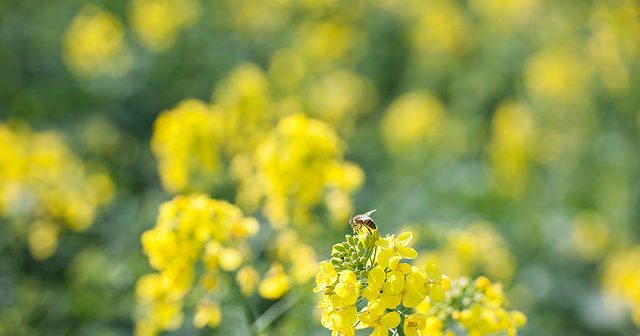The European Union has banned neonicotinoids from all fields due to the serious danger they pose to bees. The ban on neonicotinoids, approved by member nations on Friday, is expected to come into force by the end of 2018 and will mean they can only be used in closed greenhouses.
In response the ban Bayer has issued a statement: “Today’s decision by the EU Member States to restrict the use of certain neonicotinoids to applications in permanent greenhouses is a bad deal for the European agricultural sector and the environment, and one that will not improve the lot of bees or other pollinators. “The decision will further reduce European farmers’ ability to tackle important pests, for many of which there are no alternative treatments available.
“Bayer remains convinced that the restrictions are not warranted, because neonicotinoids are safe when used in accordance with the label instructions. Even under the extremely conservative evaluation criteria of the European Food Safety Authority EFSA, the most recent bee risk assessment reports (1) did not find high risks for many neonicotinoid uses where a definitive risk conclusion could be drawn; in those cases, only low risks were found for honey bees, and for wild bees the risk was also found to be low in the majority of cases.
“Bayer is surprised that, once again, legislative measures are being implemented without a prior thorough impact assessment. Beyond the costs for European farmers, the restrictions in place have already brought considerable unintended consequences: a lack of alternative solutions; more spray applications, leading to more CO2 emissions; an increased risk of resistant pest insects; and a return to older, less-effective chemicals.
“As a leading agriculture company that has a vested stake in pollinator health, Bayer has been working with partners around the globe on efforts to improve habitat and nutrition, better understand the science behind pollinator health, and improve stewardship and farmer / beekeeper communication.”
Today’s decision by EU member states, including the UK, to back a permanent ban on the outdoor use of three bee-harming pesticides is a “major victory for science, common sense and our under-threat bees”, says Friends of the Earth.
The move follows mounting scientific evidence of the threat these pesticides pose to our bees and other wildlife. Earlier this year (28 February) a major assessment of the latest science [1,2, 3] by the European Food Safety Authority [EFSA] concluded that most uses of neonicotinoid pesticides represent a risk to wild bees and honeybees.
Emi Murphy, bee campaigner at Friends of the Earth – which has been campaigning for tougher restrictions on neonicotinoids for a number of years – said: “This a major victory for science, common sense and our under-threat bees. The evidence that neonicotinoid pesticides pose a threat to our bees is overwhelming. It’s great news that Michael Gove listened to the experts and backed the ban – he must now give farmers the support they need to grow food without bee-harming pesticides.
“Neonicotinoids are not the only threat bees face – ministers must urgently step up efforts to boost nature, protect wildlife-friendly habitats and tackle overreliance on pesticides in their post-Brexit farming policy.”
Peter Lundgren, an arable farmer in Lincolnshire, who hasn’t used neonicotinoids for around eight years, said: “Bees are crucial for farming, which is why I support a tougher ban on these chemicals.I haven’t used neonicotinoids for years – and I haven’t seen a reduction in my crop yields due to pest damage.I would urge Michael Gove to increase investment into economically viable and safer alternative pest control methods.”




